Archive
2021
KubaParis
SKY LONGS TO MEET WATER LIKE SAND
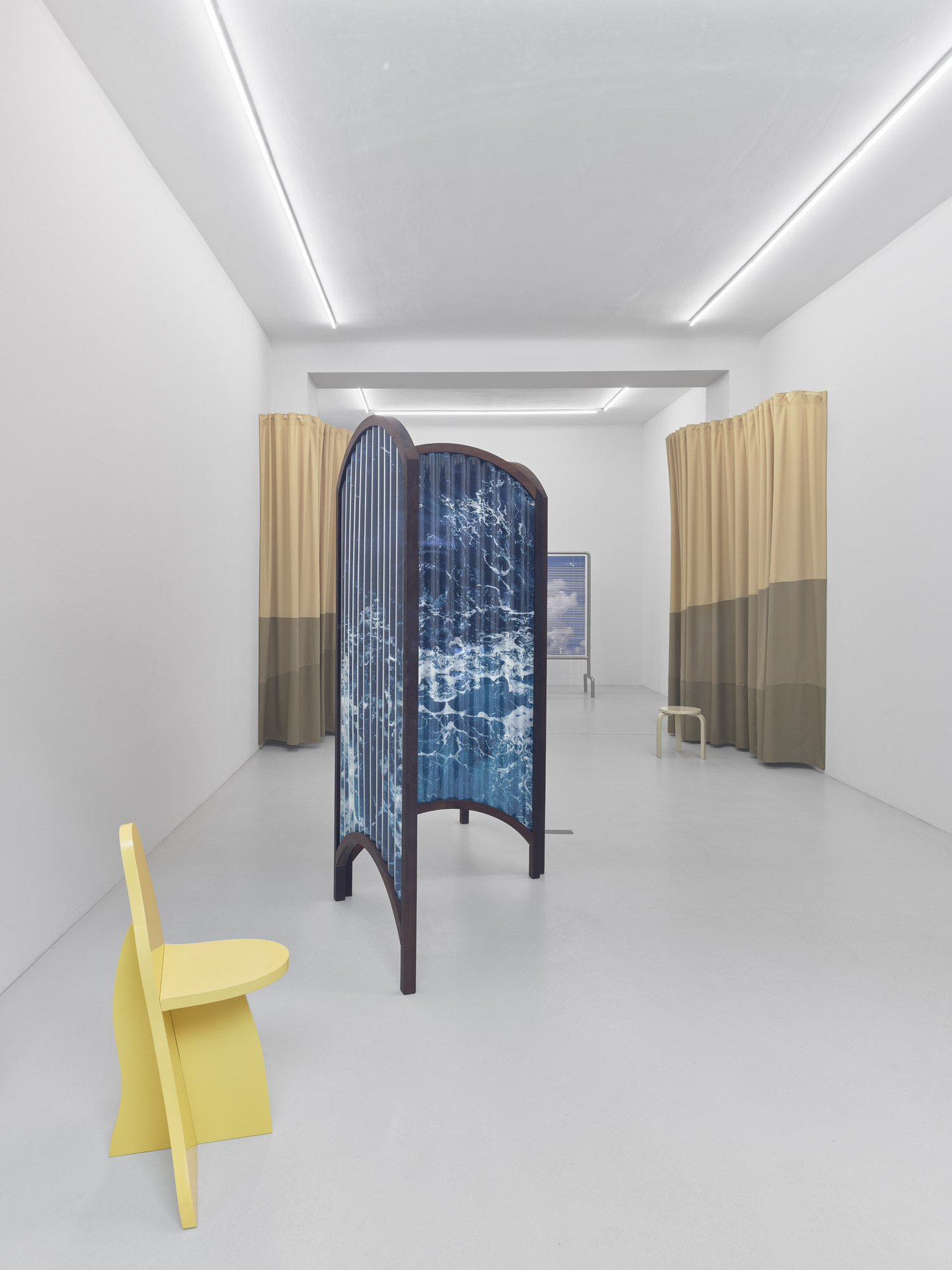
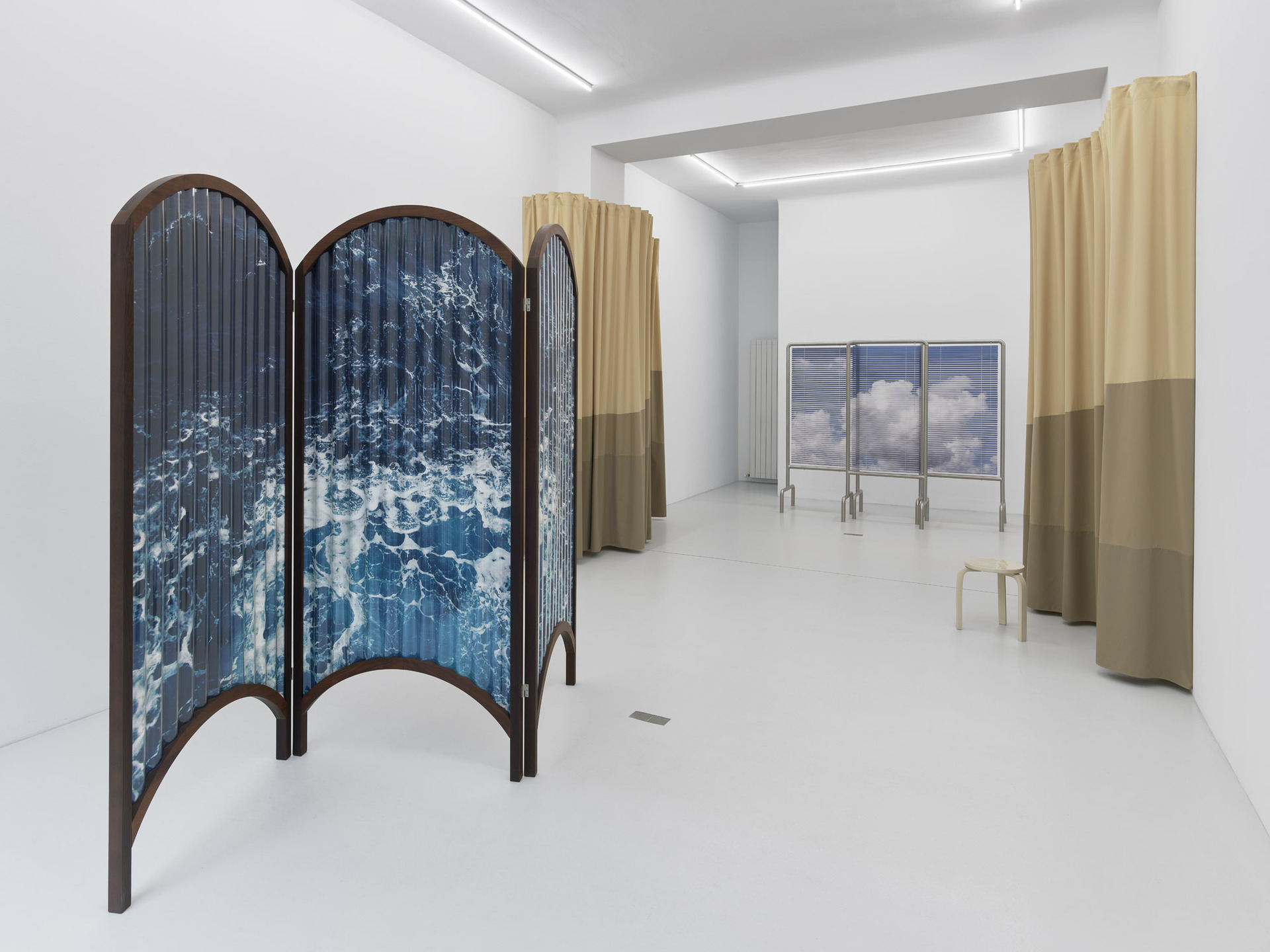
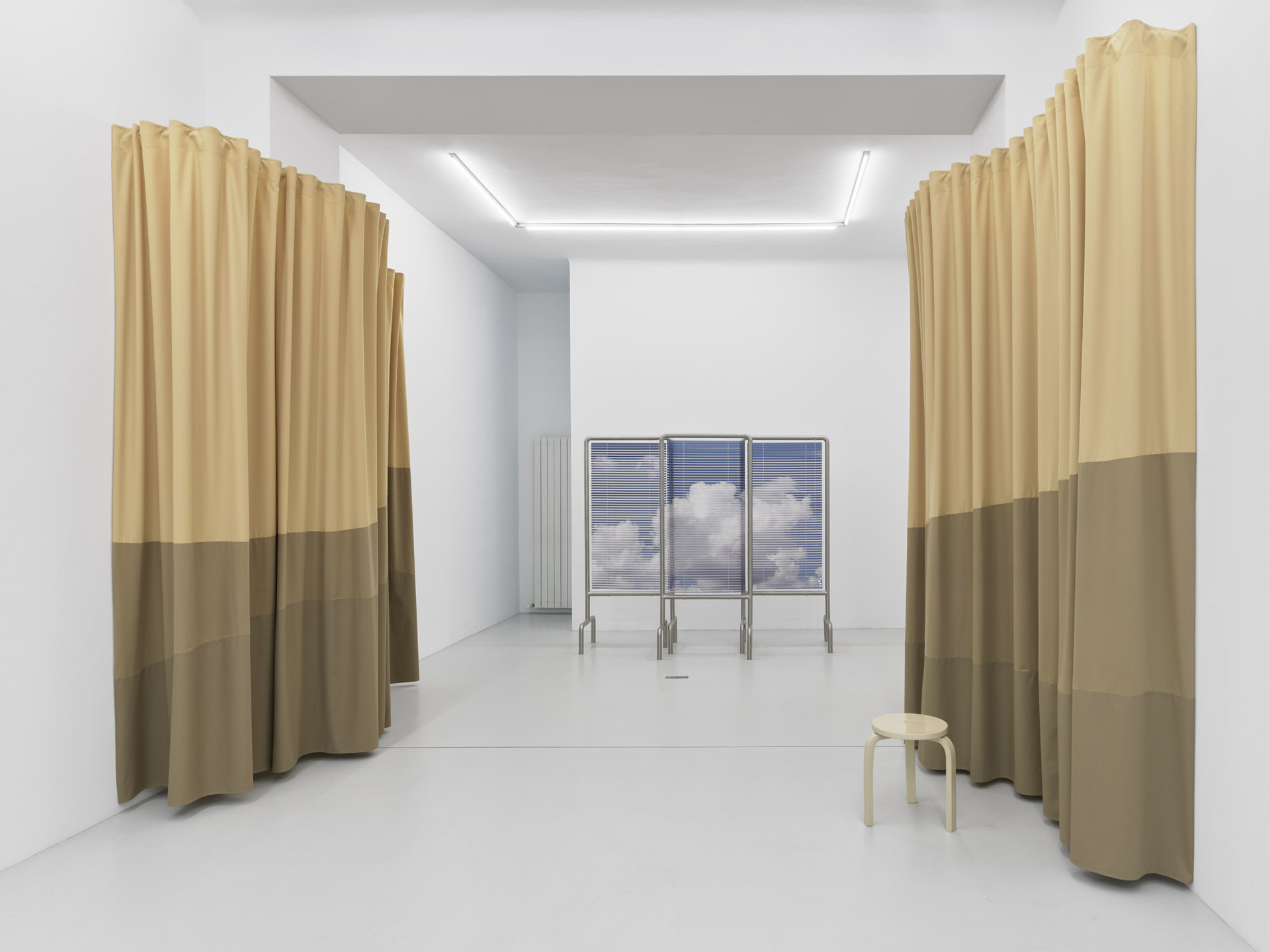
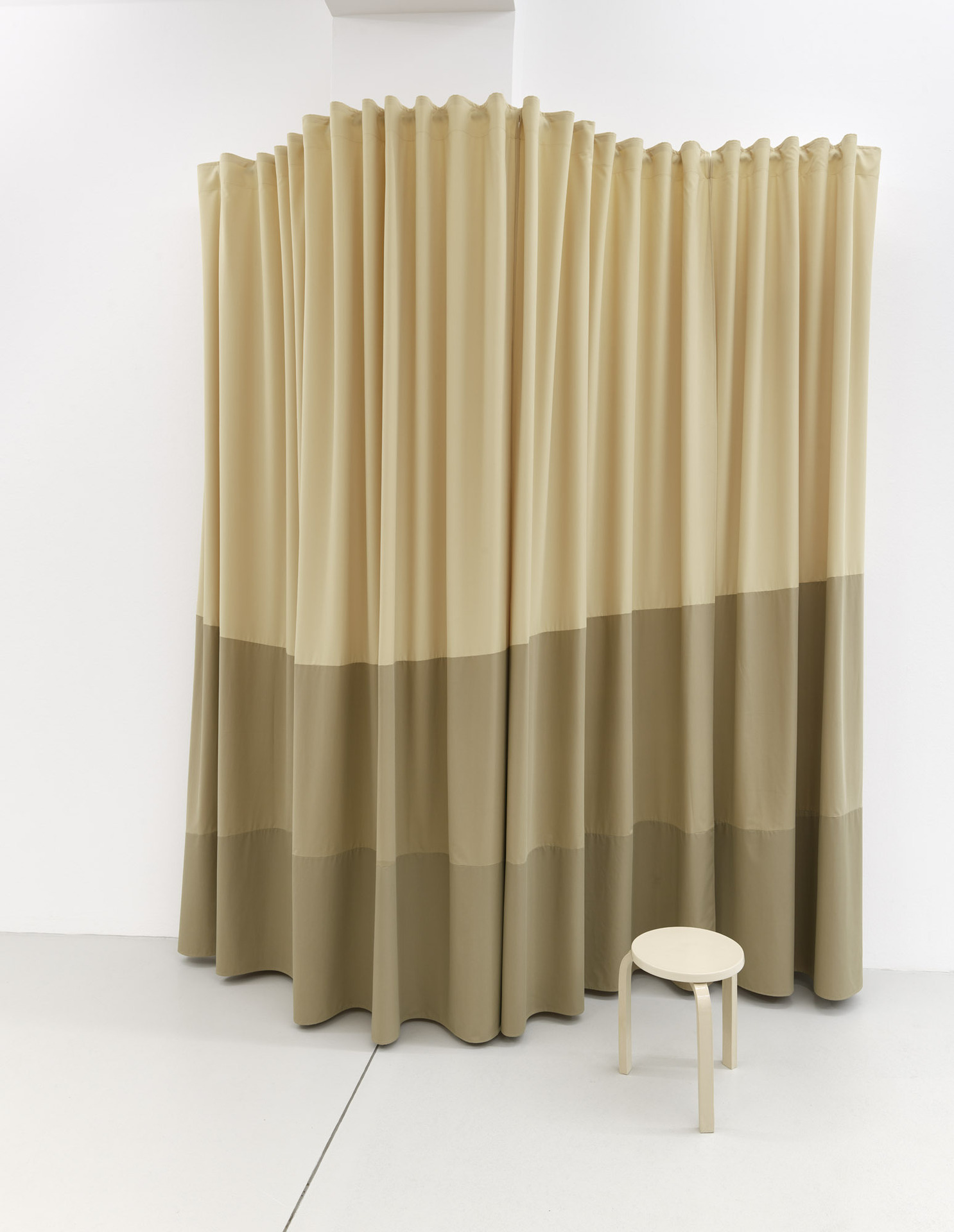
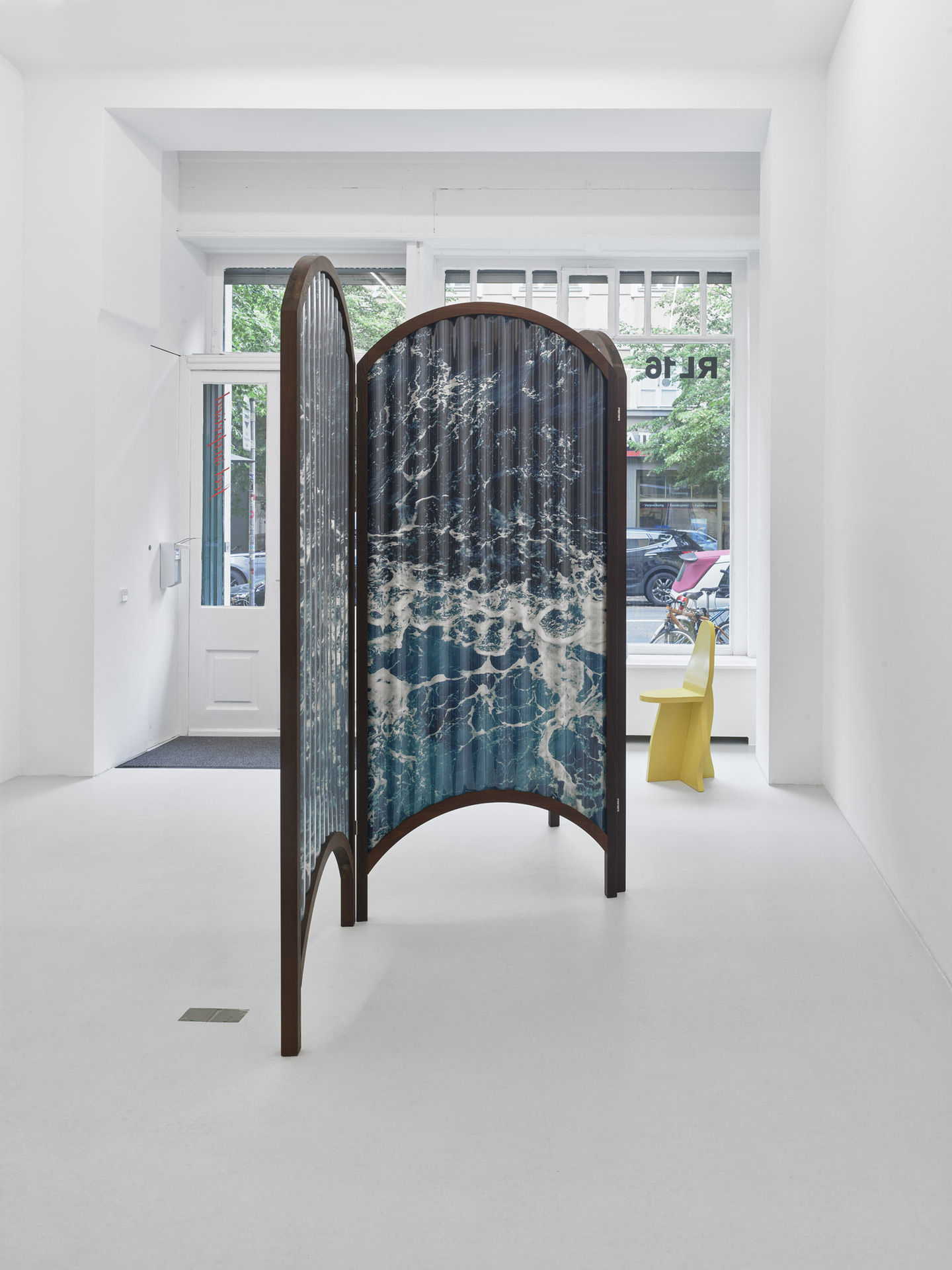
Location
RL16, BerlinDate
08.07 –18.09.2021Curator
Barbara BuchmaierPhotography
Eric TschernowSubheadline
The exhibition "Sky Longs to Meet Water Like Sand" by the Berlin-based artist Ben Dabush (*1989 in Jerusalem) invites us in an atmospheric setting of objects, which in their ambivalence can be read as interior design as well as art, to reflect anew on our own desire for consumption and the longing for moments of freedom, travel, transformation or escape from convention. Ben Dabush’s exhibition is the first in a series accompanying a re-reading of the debut novel "Things. A History of the Sixties" ("Les Choses. Une histoire des années soixante", 1965) by French writer Georges Perec.Text
The exhibition "Sky Longs to Meet Water Like Sand" by the Berlin-based artist Ben Dabush (*1989 in Jerusalem) invites us in an atmospheric setting of objects, which in their ambivalence can be read as interior design as well as art, to reflect anew on our own desire for consumption and the longing for moments of freedom, travel, transformation or escape from convention. These are socially virulent topics, and not just since the Corona pandemic; think, for example, of the trade in second-hand and vintage products, which is gaining in popularity and value, or the deliberate relocation of young families or cultural producers to the countryside, which is of course partly forced by gentrification.
In Ben Dabush’s first solo show, we see curtains draped sculpturally in front of the wall, a screen that at first glance seems “Far Eastern,” and blinds attached to distinctive stand-ups – all initially movable furnishings that serve to divide space and create a sense of privacy. However, the generic, easily accessible motifs that more or less clearly depict “splashing seawater,” “a desert landscape,” and “a blue sky (even with fair-weather clouds)” on their surfaces seem to open up space and thus become projection surfaces – against their actual functions of demarcation and visual protection. They catch us with their elemental imagery and suggest a form of transcendence, although they do block our view, at least on the purely material level.
“My idea is to explore the bright facade of escapism and to offer a moment of ease of mind. At the same time the show might also remind us that reality is inescapable,” writes Ben Dabush in an email interview that was created in the run-up to the show and can be downloaded here: PDF Download.
Ben Dabush’s exhibition is the first in a series accompanying a re-reading of the debut novel "Things. A History of the Sixties" ("Les Choses. Une histoire des années soixante", 1965) by French writer Georges Perec. In this book, Perec tells – often in the subjunctive or in the future tense – the story of Sylvie and Jérôme, two people in their mid-twenties who, after dropping out of their sociology studies, work as freelancers in the world of agencies and market research, which was expanding in Paris at the time. Both are united by an excessive desire for selected design and vintage products, for which they travel all over the city and visit countless stores and flea markets. However, the freelancers coming from the French provinces lack a firm will, the cultural capital, sufficient space and the financial means for social advancement: “The vastness of their desires paralyzed them.” Which is why one day they decide to break out of their hamster wheel and seek redemption in a new way and environment of life, first in the countryside and then in Tunisia (Sfax): “They dreamed of living in the countryside, out of temptation’s way. They would lead a calm and frugal live.” In the second part of the book and in the “Epilogue” Perec, who himself lived with his wife in Sfax from 1960 to 1961, imagines how Sylvie and Jérôme also fail at this and finally return to France, where they will take on a responsible permanent position as head of an agency in Bordeaux: “They had left to go to ground, to forget, to wind down … They felt isolated in a way that was almost painful … from [their] trips they brought back only images of emptiness and drought.” “And so they will return, and it will even be worse … They will leave Paris [to Bordeaux] … They will be in an almost empty first-class carriage … But the meal they will be served will be quite simply tasteless …”
Text: Barbara Buchmaier
The quotations are taken from Georges Perec: "Things. A Story of the Sixties; A Man Asleep …," translated by David Bellows …, https://issuu.com/de_repente/docs/things__a_story_of_the_sixties__a_m (e-book published online 2017)
Barbara Buchmaier